Beyond the remarkable wine route—which winds through wineries and vineyards along picturesque rural paths—the city of Mendoza is a treasure waiting to be discovered. Founded more than 500 years ago, its streets offer a blend of tradition and modernity: leafy parks and plazas, iconic buildings, bustling markets, and pedestrian walkways where you can sip a glass of Malbec at sunset.
Here, The MICHELIN Guide offers insider tips for exploring this city, savoring the aromas and flavors over two unforgettable days.
Day 1: The Heart of Mendoza, Mate in the Park, and Evening Pairings
Morning
Upon landing in Mendoza's capital, the majestic Andes rise to the west, dominating the horizon. Locals say the mountains shape the province's character: blocking Pacific moisture, creating an arid continental climate with 300 sunny days a year. Winds descend from the peaks, cooling the nights, while warm, dry days are perfect for lazy strolls along streets lined with ancient aqueducts—an irrigation system crafted centuries ago by the Huarpes, the region's original inhabitants.Begin your day at La Vene, a beloved bakery with several city locations. A favorite is the branch at Av. Juan B. Justo 102. Grab a seat at a sidewalk table for a classic breakfast. Alongside warm, buttery croissants, order tortitas, Mendoza's most beloved baked goods. The quintessential version is the raspada—a simple blend of flour, fat, salt, and water—said to have originated from leftover empanada dough scraps. Traditionally cooked over coals, their name comes from scraping off the charred bits. Try them stuffed with ham and cheese for a hearty start to a long day in Mendoza City.
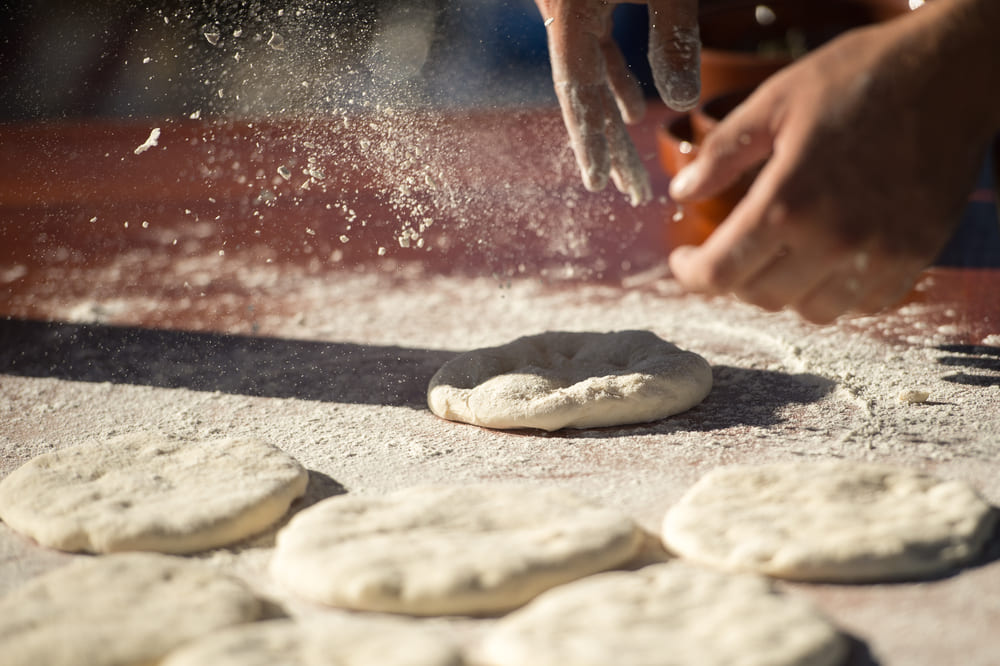
From there, a ten-minute walk brings you to Plaza Independencia, one of five equidistant squares designed by engineer Jerónimo Balloffet in 1863. Conceived not only as urban lungs but also as earthquake refuges, these plazas remain vital to city life. Plaza Independencia—the largest and most central—has become Mendoza's symbolic heart, with an artisan fair, children’s play areas, picnic spots, and a busy teenage hangout in the afternoons.
It’s an excellent starting point for exploring downtown. Just five minutes north lies the Central Market, inaugurated in 1883 as a supply hub. Today, its stalls brim with fresh local produce: olives, olive oil, dulce de leche, apples, and more. The air is scented by regional charcuterie mingled with Mendoza’s famed garlic, fresh oregano, quince preserves, peaches, dried fruits—especially Tupungato walnuts—and other specialties.
Nearby, stop at Pasaje San Martín, set within the city’s first skyscraper, built in 1906. Step inside and look up to gaze through the French stained glass glowing in the morning sun.
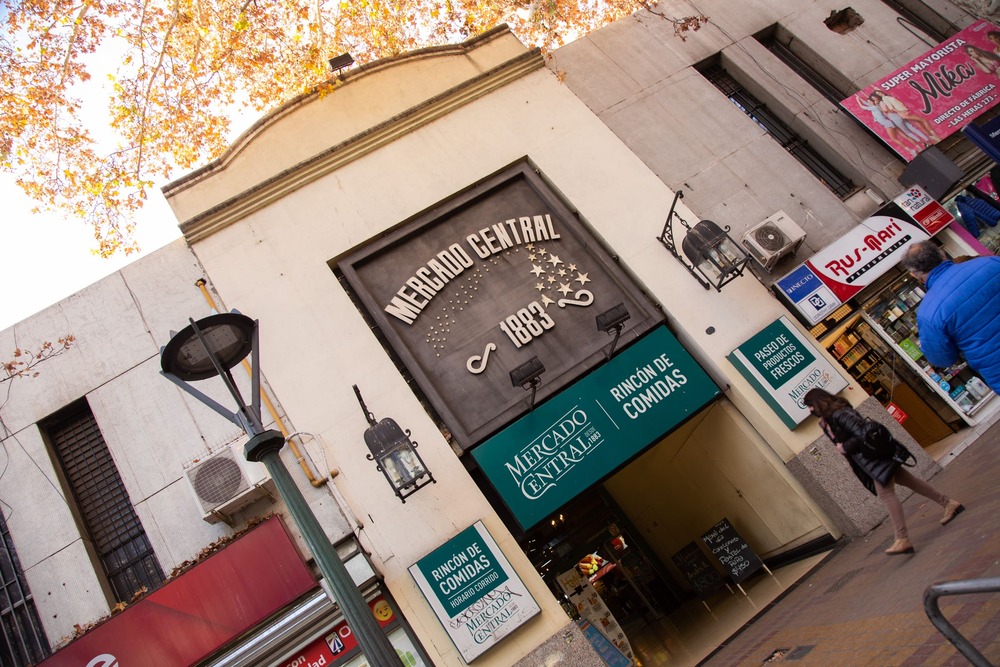
Lunch
Strolling the city, the mouthwatering scents are bound to awaken your appetite. A superb choice is Soberana, a MICHELIN–recommended restaurant serving global cuisine grounded in local products. Think Argentine sweetbreads cooked Josper-style with char sui barbecue sauce, or Mendoza empanadas with yasgua. Then move on to rib-eye steak from pasture-raised Pampas steers or rabbit lasagna, and finish with desserts like Torrontés wine granita, Mendoza peaches, and peach ice cream with pistachios.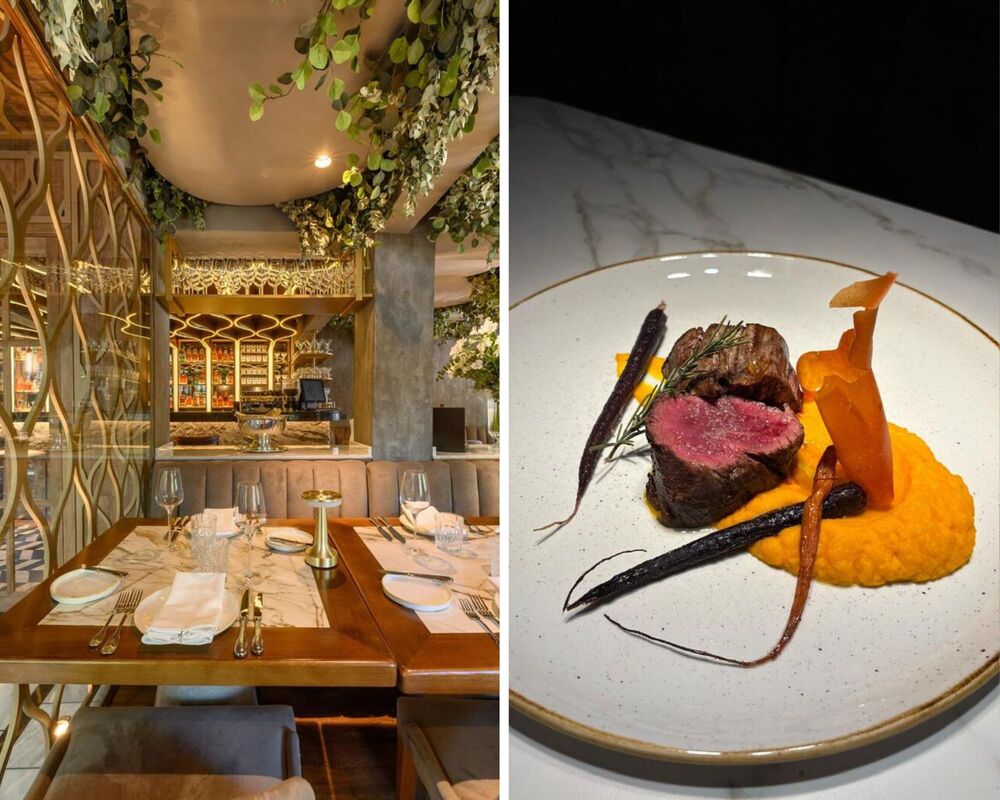
Afternoon
With a full belly and a happy heart—as the saying goes—it’s time to bask in the Mendoza sun. What better spot than Parque General San Martín, the province’s oldest park, sprawling over 300 hectares in the city’s core? The park features sports stadiums, rose gardens, nurseries, a lake, fountains, outdoor gyms, courts, cafés, food stalls, and the Cornelio Moyano Museum of natural sciences and anthropology.Don’t miss the trek up Cerro de la Gloria, easily accomplished on foot—or by car—for unmatched city views. Tour the park with a mate set—calabash, bombilla, yerba, and hot water thermos—paired with Mendoza tortitas for a quintessential snack on the grass.
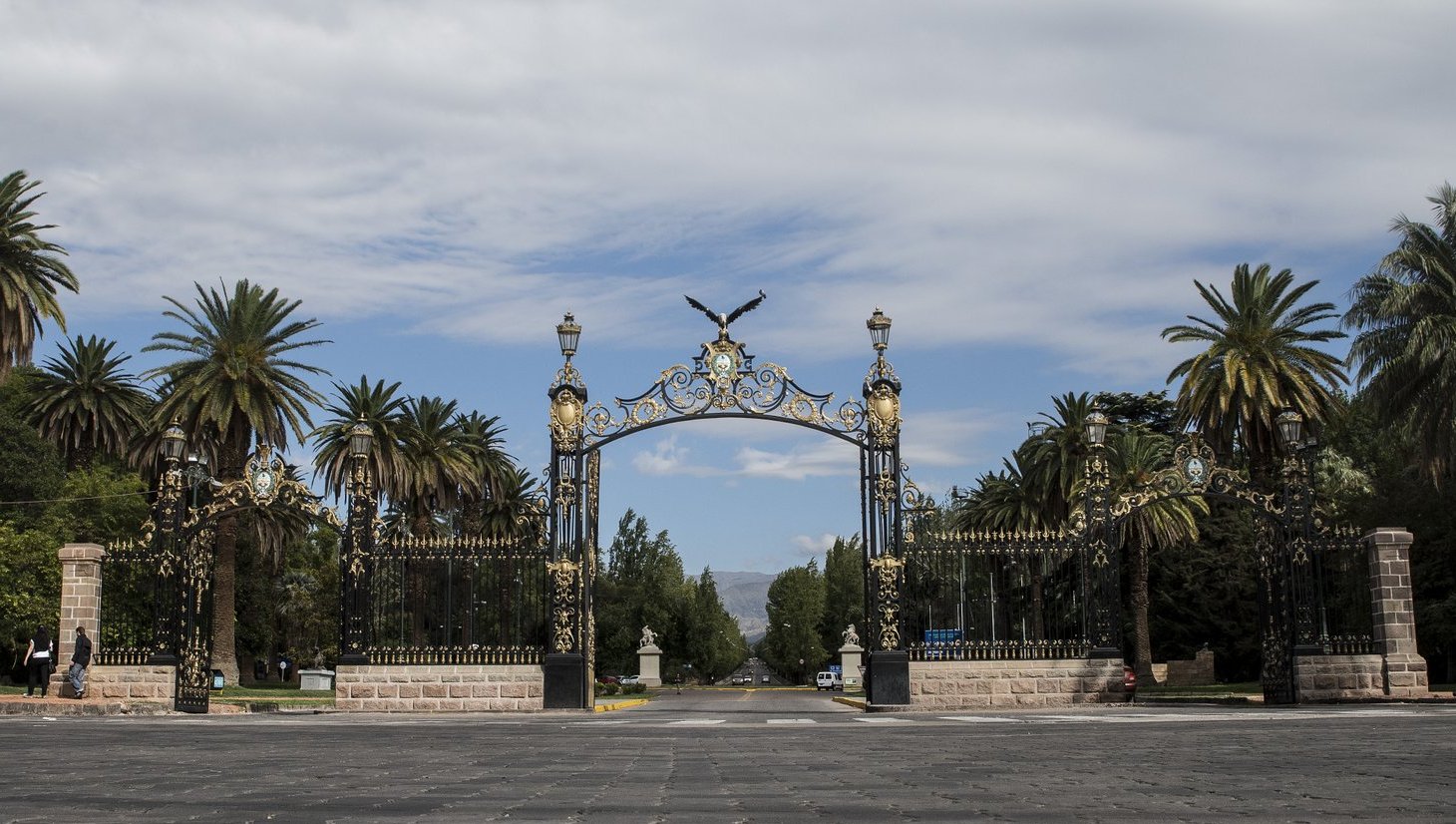
Dinner and Night
Another MICHELIN favorite, Centauro offers “authorial dishes with local products,” letting Mendoza’s flavors shine in each bite. Housed in a gorgeous mansion that was once a small hotel, the space manages to feel stylish and warm. Begin with a cocktail from the reception bar, like the Aluvional, made with Mendoza Riesling, pear cordial, and honey. Then savor a 4- or 8-course tasting menu, each dish paired with the perfect beverage.After dinner, the neighborhood comes alive with music bars, craft beer spots, and cocktail lounges. You can also wander down Arístides Street, another lively Mendoza hotspot for night owls.
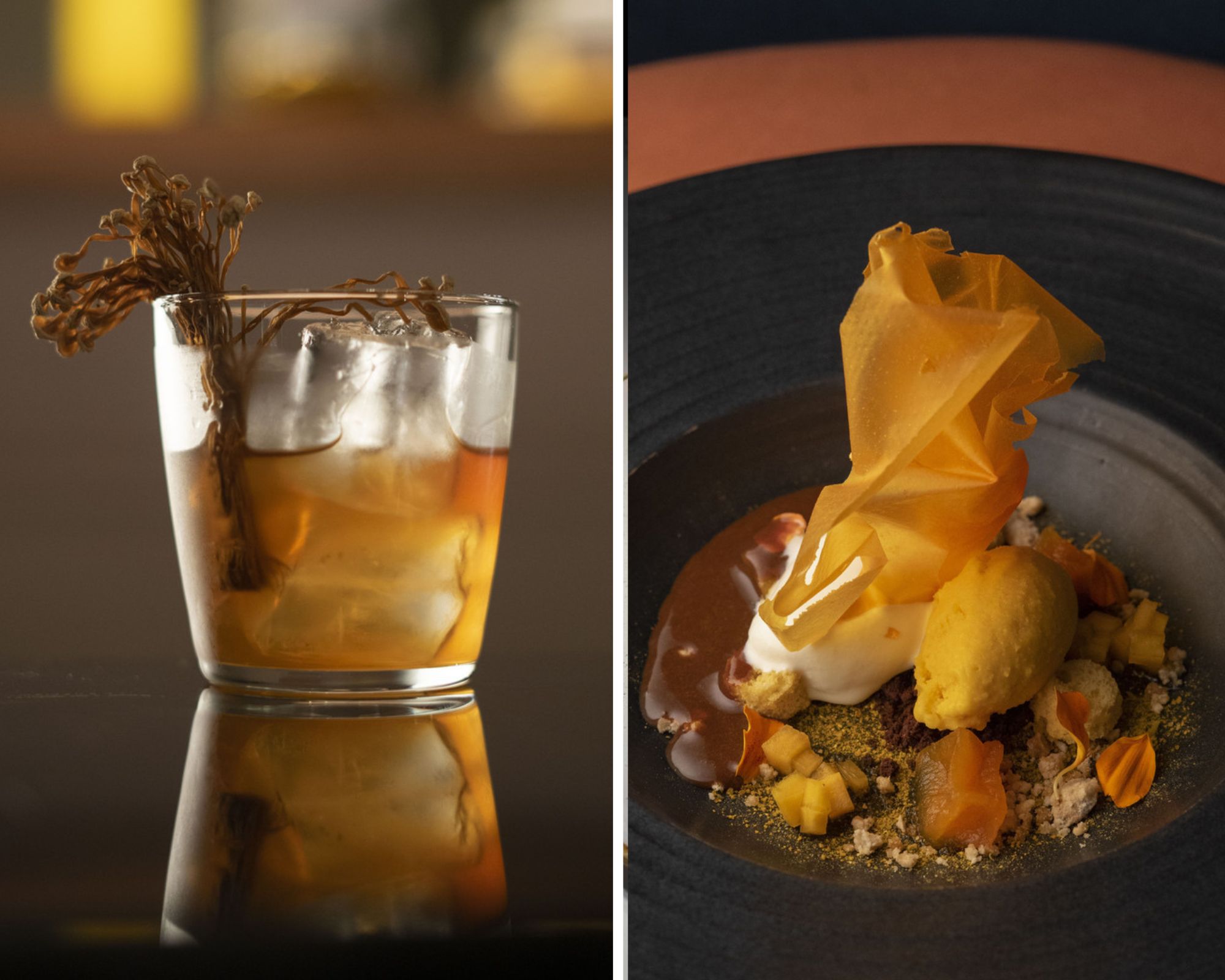
Where to Stay
A 20-minute drive from the city center, the boutique hotel Lares de Chacras offers a serene stay in the heart of a vineyard. Featuring a subterranean wine cellar, a cozy stone fireplace for chilly nights, a summer pool, and rooms with exposed wood beams and local artwork, it's an excellent choice for unwinding after a packed urban adventure.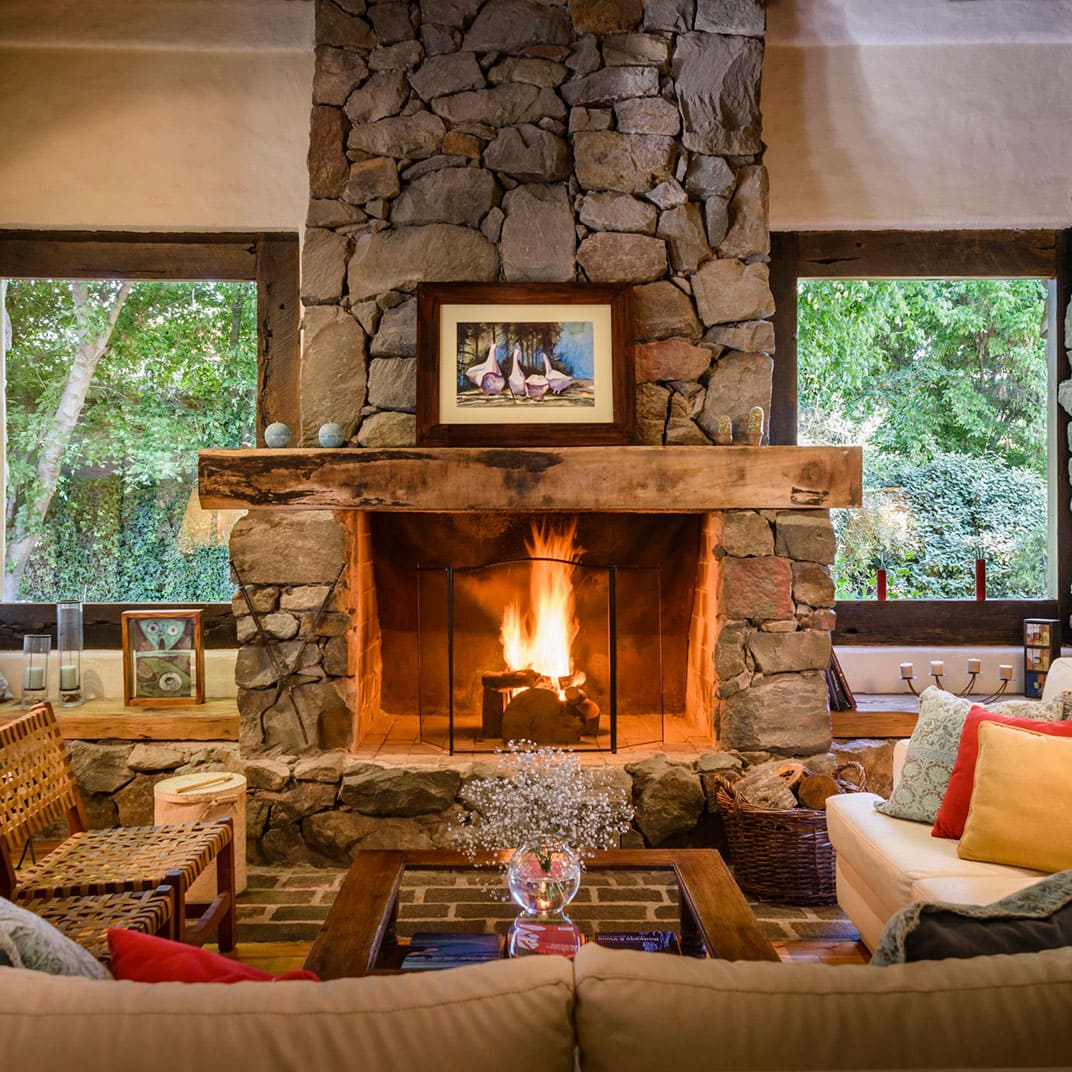
Day 2: Signature Cafés, an Urban Winery, and a Grill Dinner
Morning
As a cosmopolitan capital, Mendoza is home to specialty cafés that focus on bean selection and roasting. For a casual spot with sunlit tables, Monono is a cheerful choice offering flat whites and tasty pastries.For a slower-paced experience, head to Fran Coffee Makers, which has several locations downtown. One branch is in Galería Piazza, an emblematic shopping center recently restored to its former glory.
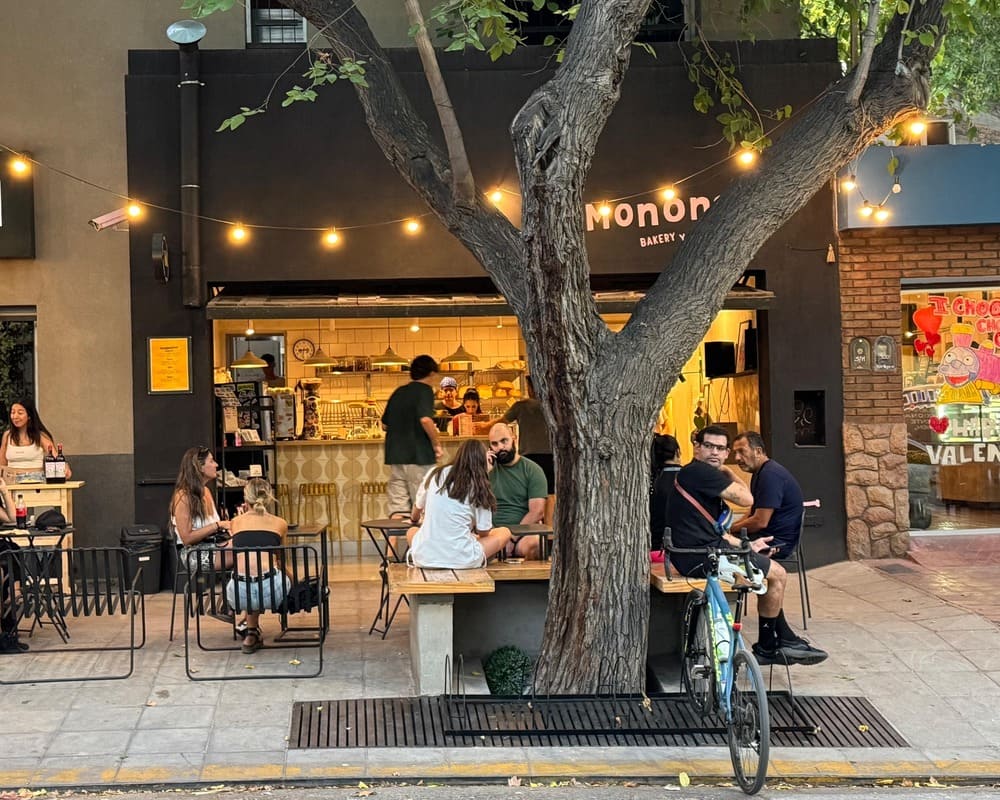
Winery Visit and Lunch
While many Mendoza wineries lie on the outskirts of the city, Los Toneles sits right in the heart of Guaymallén, preserving its original 1922 architecture as part of Mendoza’s cultural heritage. Its striking building, with exposed brick and thick walls designed to keep the interior cool, offers tours through fermentation corridors and oak barrels.
The winery also features an exceptional dining experience at Abrasado, recommended by the MICHELIN Guide. Many ingredients come from the same owner group—including Pampas-raised steers, olive oil, and balsamic vinegar—ensuring traceability. The house specialty is chef-curated matured meats, such as T-bone steak infused with olive oil and black garlic.
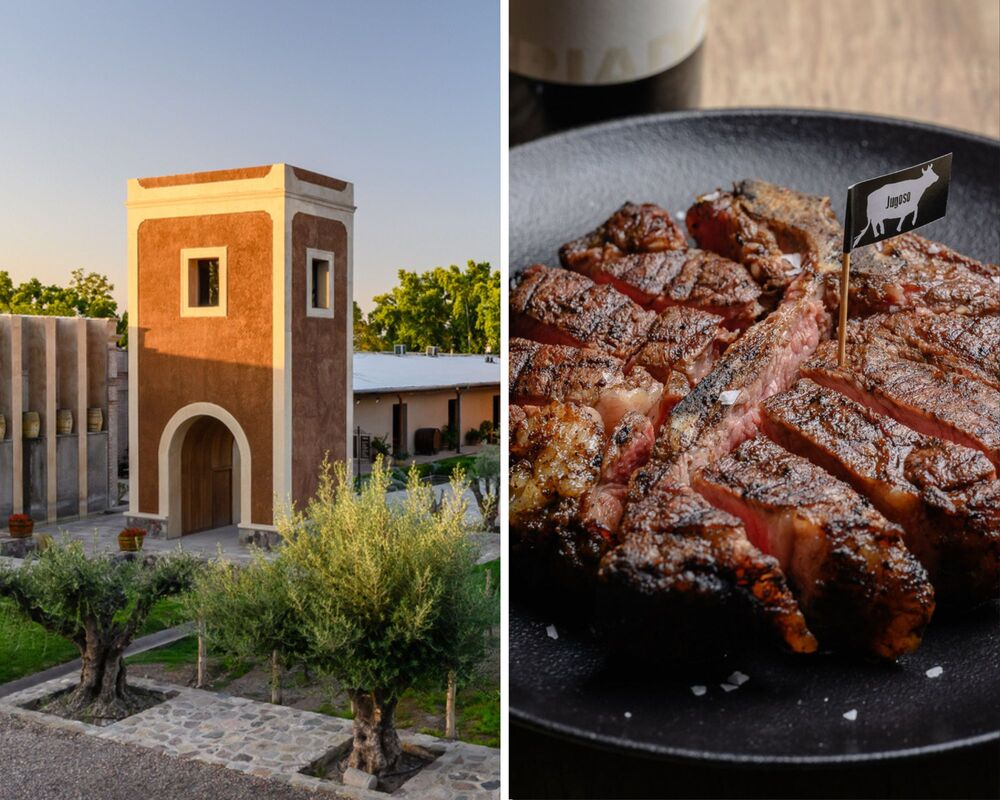
Afternoon
Mendoza’s capital has grown over recent decades, extending into areas once considered distant—like Godoy Cruz to the south, just six kilometers from Plaza Independencia. Despite its proximity, the locality retains its main square, the historic Council building—the city’s oldest public structure—the Railway Museum, which showcases trains’ economic impact across Argentina, and the San Vicente Ferrer church. It also hosts several urban wineries, including Caro, Navarro Correas, or the former Bodega Arizu, where you can explore the country's most comprehensive wine archive.For a bite, Planta Uno is a delightful communal space featuring various offerings such as a fresh produce market, a café, a burger joint, and several choice restaurants.
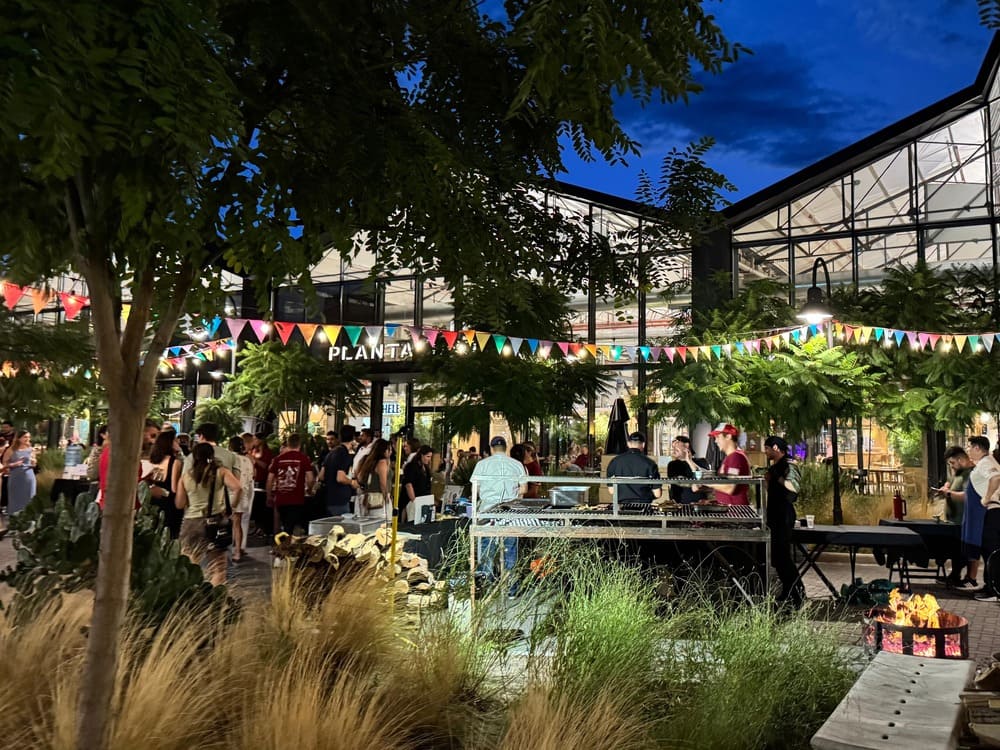
Dinner
Being in Godoy Cruz is an ideal excuse to dine at 1884 Francis Mallmann, from the iconic Argentine chef. Situated in the historic Escorihuela Gascón winery—the name pays homage to the winery's founding year—it offers diverse tasting menus, currently featuring a menu of rich winter flavors with dishes like griddled polenta with pomodoro and lamb slow-cooked for over seven hours in Malbec wine. There's also a menu dedicated exclusively to Argentine meats, spanning from grilled entraña to wagyu marucha. Dessert presents a showcase of Rio de la Plata's sweet flavors, with dulce de leche as an inevitable centerpiece.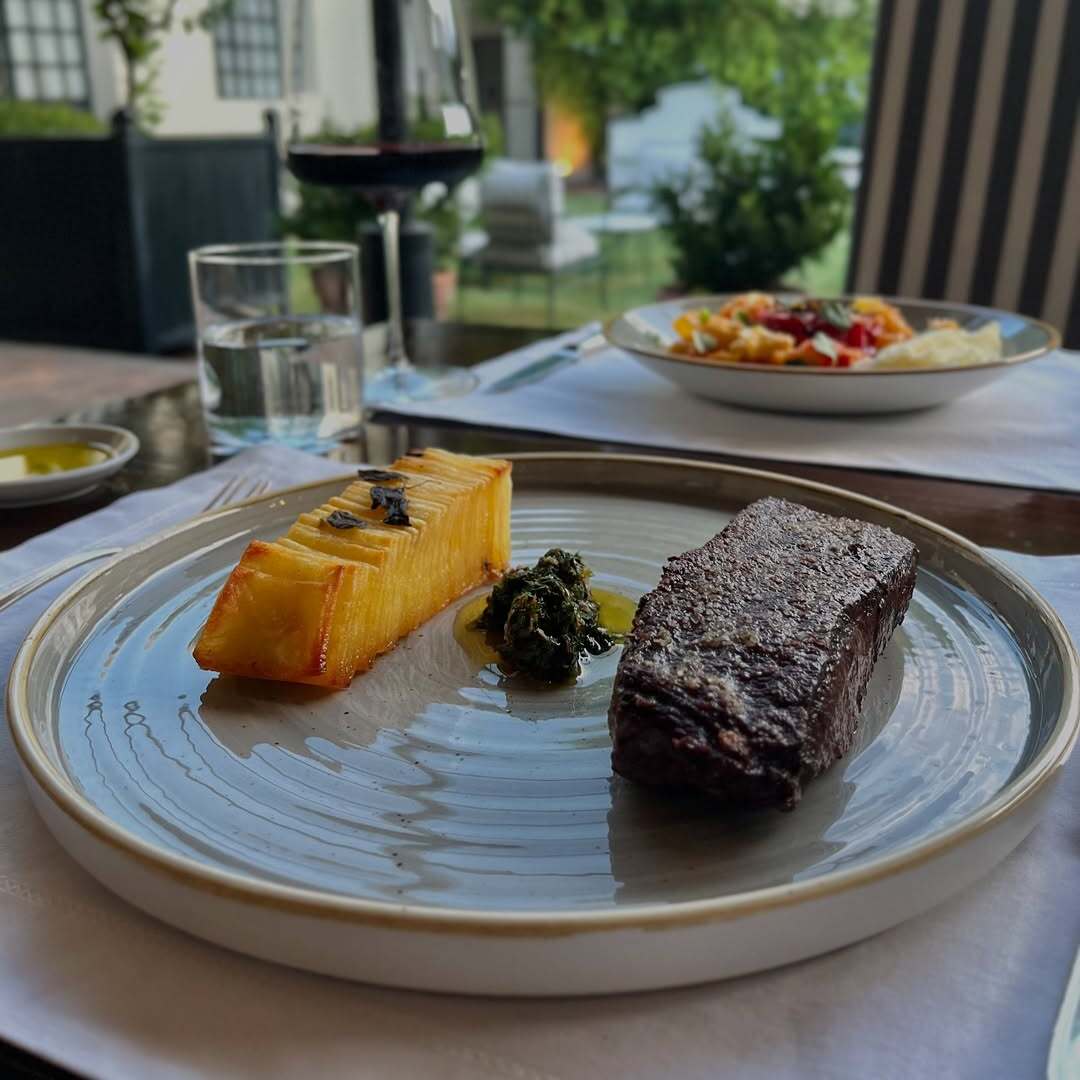
Where to Stay
About 30 minutes south in Luján de Cuyo, Cavas Wine Lodge offers a shift in pace. Surrounded by century-old vineyards and against a mountainous backdrop, the hotel features adobe-walled villas, terraces, and private pools, arranged around an elegant Spanish-style main building that blends with the landscape. It also includes a spa offering vinotherapy treatments and vineyard tours for extended stays—a perfect conclusion to two days of pure enjoyment.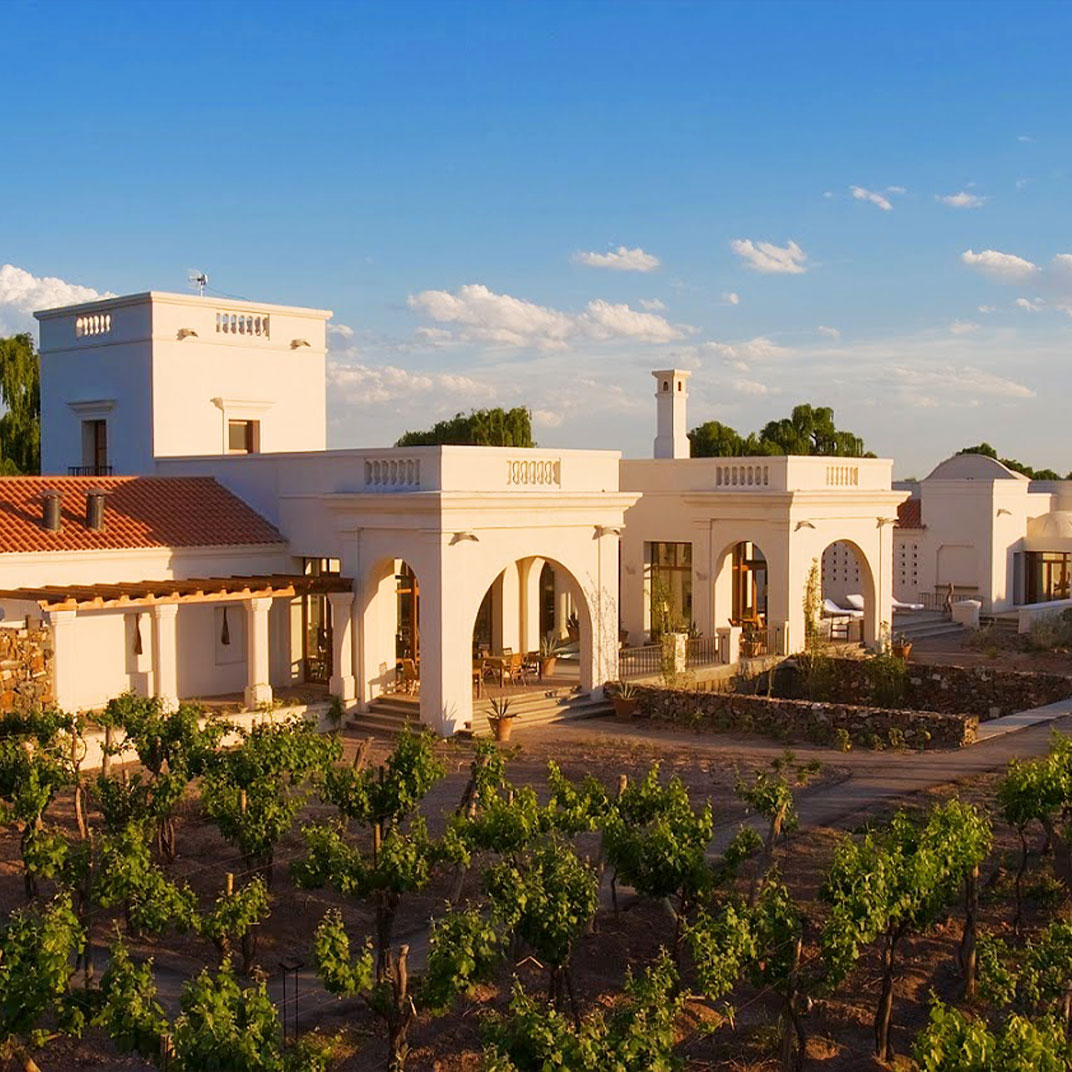
Related articles:
Hero image: Mendoza, with the Cordillera mountains in the background. © Erik Gonzalez Garcia/iStock
















